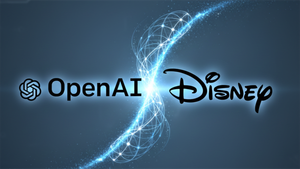Financial News
IDeate-Lung02 Phase 3 Trial of Ifinatamab Deruxtecan Initiated in Patients with Relapsed Small Cell Lung Cancer
Daiichi Sankyo (TSE: 4568) and Merck (NYSE: MRK), known as MSD outside of the United States and Canada, today announced that the first patient has been dosed in the IDeate-Lung02 phase 3 trial evaluating the efficacy and safety of investigational ifinatamab deruxtecan (I-DXd) in patients with relapsed small cell lung cancer (SCLC) versus treatment of physician’s choice of chemotherapy.
Ifinatamab deruxtecan is a specifically engineered potential first-in-class B7-H3 directed DXd antibody drug conjugate (ADC) discovered by Daiichi Sankyo and being jointly developed by Merck.
Small cell lung cancer is the second most common type of lung cancer, accounting for about 15% of cases.1 SCLC is aggressive and progresses rapidly to the metastatic stage, which has a five-year survival rate of only 3%.2,3 Approximately 65% of all SCLC tumors have a moderate-to-high expression of the protein B7-H3, which is associated with disease progression and poor prognosis.4,5
“Patients living with small cell lung cancer face poor outcomes with currently available treatments,” said Mark Rutstein, MD, Global Head, Oncology Clinical Development, Daiichi Sankyo. “The IDeate-Lung02 trial is an important next step as we look to better understand the role of ifinatamab deruxtecan as a potential new medicine for patients with certain types of small cell lung cancer.”
“The initiation of the IDeate-Lung02 trial for ifinatamab deruxtecan marks the second pivotal study since the start of our collaboration with Daiichi Sankyo and follows the recent initiation of the REJOICE-Ovarian01 phase 2/3 study for raludotatug deruxtecan,” said Marjorie Green, MD, Senior Vice President and Head of Oncology, Global Clinical Development, Merck Research Laboratories. “This is a significant milestone as we work together to evaluate an innovative medicine that may have the potential to make a meaningful difference in the lives of people facing small cell lung cancer, a difficult-to-treat cancer.”
The initiation of IDeate-Lung02 is based on updated results from a subgroup analysis of the IDeate-PanTumor01 phase 1/2 trial of ifinatamab deruxtecan presented at the 2023 World Conference on Lung Cancer hosted by the International Association for the Study of Lung Cancer.
About the IDeate-Lung02 Trial
IDeate-Lung02 is a global, multicenter, randomized, open-label phase 3 trial evaluating the efficacy and safety of ifinatamab deruxtecan (I-DXd) versus treatment of physician’s choice of chemotherapy (amrubicin, lurbinectedin or topotecan) in patients with relapsed SCLC following disease progression with only one prior line of platinum-based chemotherapy. Eligible patients will be randomized to receive ifinatamab deruxtecan (12 mg/kg) or physician’s choice of chemotherapy.
The dual primary endpoints are objective response rate (ORR) as assessed by blinded independent central review (BICR) and overall survival. Secondary endpoints include ORR as assessed by investigator, and progression-free survival, duration of response, disease control rate and time to response – all assessed by both BICR and investigator.
IDeate-Lung02 is expected to enroll approximately 460 patients across Asia, Europe, Oceania, North America and South America. For more information, please visit ClinicalTrials.gov.
About Small Cell Lung Cancer
More than 2.48 million lung cancer cases were diagnosed globally in 2022.6 Small cell lung cancer is the second most common type of lung cancer, accounting for about 15% of cases.1 SCLC is aggressive and progresses rapidly to the metastatic stage, which has a five-year survival rate of only 3%.2,3 While conventional first-line therapy for patients with advanced SCLC may help some patients live longer, the current second-line standard of care offers limited clinical benefit and new treatment approaches are needed.7,8,9,10
About B7-H3
B7-H3 is a transmembrane protein that belongs to the B7 family of proteins which bind to the CD28 family of receptors that includes PD-1.11,12 B7-H3 is overexpressed in a wide range of cancer types, including small cell lung cancer, and its overexpression has been shown to correlate with poor prognosis, making B7-H3 a promising therapeutic target.4,12,13,14,15 There are currently no B7-H3 directed medicines approved for the treatment of any cancer.
About Ifinatamab Deruxtecan
Ifinatamab deruxtecan (I-DXd) is an investigational, potential first-in-class B7-H3 directed ADC. Designed using Daiichi Sankyo’s proprietary DXd ADC Technology, ifinatamab deruxtecan is comprised of a humanized anti-B7-H3 IgG1 monoclonal antibody attached to a number of topoisomerase I inhibitor payloads (an exatecan derivative, DXd) via tetrapeptide-based cleavable linkers.
Ifinatamab deruxtecan is being evaluated in a global development program, which includes IDeate-Lung02, a phase 3 trial in patients with relapsed SCLC versus investigator’s choice of chemotherapy, IDeate-Lung01, a phase 2 monotherapy trial in patients with previously treated extensive-stage SCLC and IDeate-PanTumor01, a phase 1/2 first-in-human trial in collaboration with Sarah Cannon Research Institute (SCRI) with study operational oversight and delivery provided through SCRI’s early phase oncology clinical research organization, SCRI Development Innovations in Nashville, TN. Ifinatamab deruxtecan was granted orphan drug designation by the U.S. Food and Drug Administration in April 2023 and by the European Commission in February 2024 for the treatment of SCLC.
About the Daiichi Sankyo and Merck Collaboration
Daiichi Sankyo and Merck (known as MSD outside of the United States and Canada) entered into a global collaboration in October 2023 to jointly develop and commercialize patritumab deruxtecan (HER3-DXd), ifinatamab deruxtecan (I-DXd) and raludotatug deruxtecan (R-DXd), except in Japan where Daiichi Sankyo will maintain exclusive rights. Daiichi Sankyo will be solely responsible for manufacturing and supply.
About the DXd ADC Portfolio of Daiichi Sankyo
The DXd ADC portfolio of Daiichi Sankyo currently consists of six ADCs in clinical development across multiple types of cancer. ENHERTU, a HER2 directed ADC, and datopotamab deruxtecan (Dato-DXd), a TROP2 directed ADC, are being jointly developed and commercialized globally with AstraZeneca. Patritumab deruxtecan (HER3-DXd), a HER3 directed ADC, ifinatamab deruxtecan (I-DXd), a B7-H3 directed ADC, and raludotatug deruxtecan (R-DXd), a CDH6 directed ADC, are being jointly developed and commercialized globally with Merck. DS-3939, a TA-MUC1 directed ADC, is being developed by Daiichi Sankyo.
Designed using Daiichi Sankyo’s proprietary DXd ADC Technology to target and deliver a cytotoxic payload inside cancer cells that express a specific cell surface antigen, each ADC consists of a monoclonal antibody attached to a number of topoisomerase I inhibitor payloads (an exatecan derivative, DXd) via tetrapeptide-based cleavable linkers.
Datopotamab deruxtecan, ifinatamab deruxtecan, patritumab deruxtecan, raludotatug deruxtecan and DS-3939 are investigational medicines that have not been approved for any indication in any country. Safety and efficacy have not been established.
About Daiichi Sankyo
Daiichi Sankyo is an innovative global healthcare company contributing to the sustainable development of society that discovers, develops and delivers new standards of care to enrich the quality of life around the world. With more than 120 years of experience, Daiichi Sankyo leverages its world-class science and technology to create new modalities and innovative medicines for people with cancer, cardiovascular and other diseases with high unmet medical needs. For more information, please visit www.daiichisankyo.com.
Merck’s Focus on Cancer
Every day, we follow the science as we work to discover innovations that can help patients, no matter what stage of cancer they have. As a leading oncology company, we are pursuing research where scientific opportunity and medical need converge, underpinned by our diverse pipeline of more than 25 novel mechanisms. With one of the largest clinical development programs across more than 30 tumor types, we strive to advance breakthrough science that will shape the future of oncology. By addressing barriers to clinical trial participation, screening and treatment, we work with urgency to reduce disparities and help ensure patients have access to high-quality cancer care. Our unwavering commitment is what will bring us closer to our goal of bringing life to more patients with cancer. For more information, visit https://www.merck.com/research/oncology/.
About Merck
At Merck, known as MSD outside of the United States and Canada, we are unified around our purpose: We use the power of leading-edge science to save and improve lives around the world. For more than 130 years, we have brought hope to humanity through the development of important medicines and vaccines. We aspire to be the premier research-intensive biopharmaceutical company in the world – and today, we are at the forefront of research to deliver innovative health solutions that advance the prevention and treatment of diseases in people and animals. We foster a diverse and inclusive global workforce and operate responsibly every day to enable a safe, sustainable and healthy future for all people and communities. For more information, visit www.merck.com and connect with us on X (formerly Twitter), Facebook, Instagram, YouTube and LinkedIn.
Forward-Looking Statement of Merck & Co., Inc., Rahway, N.J., USA
This news release of Merck & Co., Inc., Rahway, N.J., USA (the “company”) includes “forward-looking statements” within the meaning of the safe harbor provisions of the U.S. Private Securities Litigation Reform Act of 1995. These statements are based upon the current beliefs and expectations of the company’s management and are subject to significant risks and uncertainties. There can be no guarantees with respect to pipeline candidates that the candidates will receive the necessary regulatory approvals or that they will prove to be commercially successful. If underlying assumptions prove inaccurate or risks or uncertainties materialize, actual results may differ materially from those set forth in the forward-looking statements.
Risks and uncertainties include but are not limited to, general industry conditions and competition; general economic factors, including interest rate and currency exchange rate fluctuations; the impact of pharmaceutical industry regulation and health care legislation in the United States and internationally; global trends toward health care cost containment; technological advances, new products and patents attained by competitors; challenges inherent in new product development, including obtaining regulatory approval; the company’s ability to accurately predict future market conditions; manufacturing difficulties or delays; financial instability of international economies and sovereign risk; dependence on the effectiveness of the company’s patents and other protections for innovative products; and the exposure to litigation, including patent litigation, and/or regulatory actions.
The company undertakes no obligation to publicly update any forward-looking statement, whether as a result of new information, future events or otherwise. Additional factors that could cause results to differ materially from those described in the forward-looking statements can be found in the company’s Annual Report on Form 10-K for the year ended December 31, 2023 and the company’s other filings with the Securities and Exchange Commission (SEC) available at the SEC’s Internet site (www.sec.gov).
References:
1 Schabath MB, et al. Cancer Epidemiol Biomarkers Prev. 2019 Oct;28(10):1563-1579.
2 Rudin CM, et al. Nat Rev Dis Primers. 2021;7(1):3.
3 Cancer.net. Lung Cancer - Small Cell: Statistics. Accessed May 2024.
4 Qiu M-j, et al. Front. Oncol. 2021;11:600238.
5 Dong P, et al. Front Oncol. 2018;8:264
6 World Health Organization. International Agency for Research on Cancer. U.S. Cancer Fact Sheet. Accessed May 2024.
7 American Cancer Society. Treatment Choices for Small Cell Lung Cancer, by Stage. Accessed May 2024.
8 Liu SV, et al. J Clin Oncol. 2021;39(6):619-30.
9 Paz-Ares L, et al. ESMO Open. 2022;7(2):100408.
10 von Pawel J, et al. J Clin Oncol. 2014; 32:4012-4019.
11 Zhao B, et al. J Hematol Oncol. 2022;15(1):153.
12 Janakiram M, et al. Immunol Rev. 2017;276(1):26-39.
13 Picarda E, et al. Clin Cancer Res. 2016;22(14):3425-3431.
14 Bendell JC, et al. J Clin Oncol. 2020;39(15 suppl 1). Abstract TPS3646.
15 Kontos F, et al. Clin Cancer Res. 2021;27(5):1227-1235.
View source version on businesswire.com: https://www.businesswire.com/news/home/20240731774917/en/
Contacts
Global/US Media:
Jennifer Brennan
Daiichi Sankyo, Inc.
jennifer.brennan@daiichisankyo.com
(908) 900-3183 (mobile)
Japan Media:
DS-PR@daiichisankyo.co.jp
Investor Relations Contact:
DaiichiSankyoIR@daiichisankyo.co.jp
Merck
Media:
Julie Cunningham
(617) 519-6264
julie.cunningham@merck.com
Carly Myar
(917) 227-5957
carly.myar@merck.com
Investors:
Peter Dannenbaum
(732) 594-1579
peter.dannenbaum@merck.com
Damini Chokshi
(732) 594-1577
damini_chokshi@merck.com
More News
View More




Recent Quotes
View More
Quotes delayed at least 20 minutes.
By accessing this page, you agree to the Privacy Policy and Terms Of Service.



